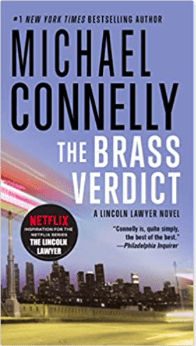Does this sound familiar?
Insurance business could be encouraged by offices maintaining a good relationship with the building industry….Most fire offices had surveyors on their staff, either a permanent salarymen, or employed on a casual basis….It was important for insurers to obtain the services of competent and knowledgeable men, for the accuracy of valuations and loss adjustments, and ultimately the level of underwriting profits, could depend upon their reports. Most offices contracted out the work of rebuilding insured houses destroyed by fire, and thus had to maintain a reliable pool of builders. Classifying insured property by type of construction was also a task for which expertise was sought from the building trades. Another area of cooperation related to building regulations. Insurance offices were troubled by the shoddy work of speculative builders who failed to comply with the London building acts. As early as 1763 London insurers combined to promote regulation to prevent the spread of fires in the metropolis….For most of the eighteenth century such cooperation remained feasible because the number of competing insurance offices remained limited , and some overview was possible of the quality of new building, and the virtues and vices of different building contractors….Fewer damaged houses were rebuilt by the fire offices, and fewer common residential properties were subjected to inspection.”
Robin Pearson, INSURING THE INDUSTRIAL REVOLUTION: FIRE INSURANCE IN GREAT BRITAIN, 1700-1850, p. 38 (Ashgate Publishing Company, 2004).
In my view, the answer is Yes and No, at the same time. The close connection between insurers and the building trade is not exactly right in organizational terms, but the the substance might be right. Still, it seems odd to me that there is no explicit reference to adjusters. They must have existed. My bet is that the insurer got all sorts of recommendations of builders, etc., and then worked within itself determine coverage.
As with many volumes of insurance history, where the authors are not interested in the policies, whether their language, the various types of attitudes toward them, and how insurers handled the contracts, particularly the exclusions, Pearson falls in line. They–including he–are principally interested in finance, and how insurance companies fit into the financial structures of the times.
Here is something else Pearson says: “For most of the eighteenth century such cooperation [the cooperation of the sort just mentioned] remained feasible because the number of competing insurance offices [i.e., companies or “syndicate-centers”] remained limited, and some overview was possible of the quality of new buildings, and the virtues and vices of different building contractors. . . . Fewer damages houses were rebuilt by fire offices, and fewer common residential properties were subjected to inspection.” p. 39.
I am not sure what all this means. First, the insurer may not themselves have rebuilt burned-out structures, but they still may have insured them, and–second–they may have used builders to help them determine the worth of buildings that had been destroyed. Third, it is difficult to see why as an economy grows and there are more wealthy people, there would be less insurance of residences. Fourth, everything Pearson says about the change from the 18th to the 19th century in fire insurance, turns on what the policies looked like, how revenues were dealt with, how reserves (or their predecessors) were set, and how revenue worked. Fifth, a lot of this turns on how the claims process worked, how doctrines of moral hazard were used, the dedication of insurer to enforce their contracts as written, and how devoted they were to avoid using their power to inflict injuries on insureds. Professor Pearson discusses none of this, nor are their authoritative citations. (Professor Pearson is scornful of company history, and it is easy to see why. It seems likely to me that the topics I just laid out having to do with the history of claims performance and management are not topics insurer would want to talk about unless their performances are sterling all the way through.)





Recent Comments